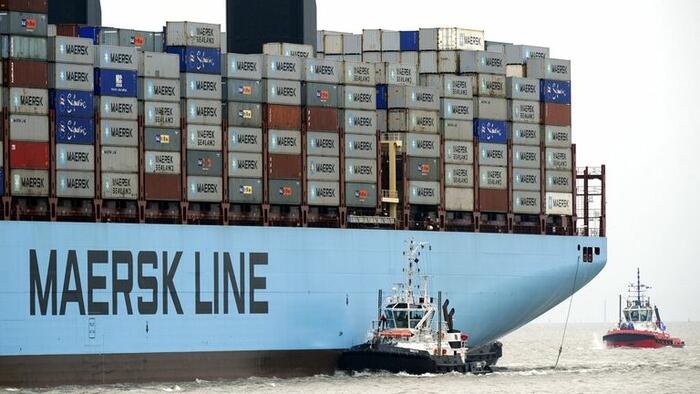

The world’s largest container carrier The world has a handful of shipping companies, and one we follow is AP Moller-Maersk A/S, which warned of a “radically changed business environment” as profits decrease in the first quarter due to the drop in transport volumes. and sliding freight rates, the Financial Times reported.
Maersk, which transports about a fifth of the world’s containers, beat analysts’ expectations in the first quarter, but profits outlined for the rest of the year would be weaker. He said the first three months of 2023 “will be the best quarter of the financial year.”
“The guidance for 2023 continues to be based on the expectation of a global GDP growth in 2023 muted and this volume declines will stabilize at the end of the first semester, leading to a more balanced demand environment. In that normalization, the first quarter is expected to be the best quarter of the year.”
Chief executive Vincent Clerc told the FT about a huge influx of new ships about to hit the world’s major shipping lanes ordered over the past few years. It expects these ships to be delivered in 2024.
“Obviously he’s going to be injured because a few will come this year and next year too. Volumes come back later, but it’s not as if the macroeconomic backdrop is pointing to much growth to do so,” he added.
In the first quarter, Maersk reported a 56% drop in EBITDA, which came to $3.97 billion, compared to the average analyst estimate of $3.55 billion. The quarter saw a 9.4% reduction in volumes and a 37% drop in freight rates, which are now near break-even.
In a separate interview, Clerc told Bloomberg that there is still much uncertainty ahead as global business activity slows and companies race to reduce inventories in warehouses due to overstocking during the years of the pandemic. In return, demand for containerships has collapsed in major shipping lanes from Asia to Europe and the US. The drop in shipping started in late 2021 when container rates were exceeded.
Simultaneously, the IMF cut its global growth projections in its latest World Economic Outlook report, warning of growing risks of a “hard landing”.
And the days of overconsumption of goods, driven primarily by fiscal stimulus, are over, and one of the main reasons global shipping lanes are slowing down. When Maersk speaks, it’s worth listening as economic storm clouds gather.